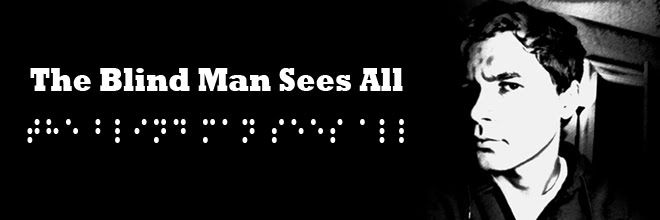Five weeks of dead ends later, I received an email from a UK record dealer who had found a friend willing to part with his copy of "Selection of Haydn Wood's Songs." I still had no confirmation that this disc included the tune. However, having identified 136 Albert Sandler 78s that did not contain "When the Daisy Opens Her Eyes," I felt assured my time had come and made the purchase. Thankfully, I was right: Sandler included "Daisy" in his Haydn Wood medley, closing the circle on my Search for Metro-Land. The record's details are as follows:
Albert Sandler - Selection of Haydn Wood's Songs (Columbia DX 961)
Side 1 (Matrix CAX-8713-1)
Selection of Haydn Wood's Songs - Part 1: Fleurette, I Shall Never Forget/Silver Clouds/It Is Only a Tiny Garden/Love's Garden of Roses
Side 2 (Matrix CAX-8714-2)
Selection of Haydn Wood's Songs - Part 2: When the Daisy Opens Her Eyes/I Love Your Eyes of Grey/Roses of Picardy
Both selections recorded January 21, 1940. Columbia DX 961 was released in March 1940 and deleted from the catalog in March 1949.
Download by clicking the arrow button beneath the Soundcloud logo.
* * *
* * *
Finding the record suggested answers to a number of questions. The dealer addressed the disc's scarcity, reasonably surmising that compositions by Wood (whose most popular song was published in 1916) would have viewed as hopelessly old-fashioned by 1940 and sold very few copies. Furthermore, the use of "Daisy" as merely part of a subtitle explained why I had found so little information on the song. For one thing, Albert Sandler's records had never been explicitly linked to the "Daisy" title on the internet: the internet ostensibly contains 3 prior references [2] to the Albert Sandler record "Selection of Haydn Wood's Songs," none of which list the subtitle. For another, even in general, "Daisy" is more often referenced as a part of Haydn Wood medleys than it is standing alone. One such fascinating artifact – part of the Australian Library of Congress' digital holdings – is a copy of sheet music bearing the same title as my record, copyrighted 1920. In keeping with "Daisy's" obscurity (apparently even at the time), it is not advertised on the front cover, but is included on page 10. It would seem likely that this arrangement of Wood's music actually served as the basis for Sandler's: though 6 of the sheet music's 13 songs were excised (almost certainly for time [3]), the remaining 7 are all found on the record, in order. At least one bit of evidence suggests the medley, truncated or otherwise, remained part of his repertoire after recording it: he performed it as the last program of the day for BBC Radio at 11:30pm on February 28, 1943.
* * *
My quest for "When the Daisy Opens Her Eyes" has been the most obscure pursuit of a life already full of them. The year and a half between first seeing Metro-Land and completing the search for "Daisy" included the hardest 18 months of medical school and multiple other unforeseen challenges - sporadically interspersed with new information on a man I was unlikely to ever have heard about. It's been a pleasure to discover the gems populating his enormous discography. In this transitional period, it's also been touching to uncover the details of a life that it's felt time is on the verge of passing by. I decided to use what I've been able cobble together as the basis of a short biodiscography, which I've published online here. I hope it'll serve in a modest way to preserve his memory, and provide some interest to anyone else that should stumble upon Albert Sandler as haphazardly as I did.




